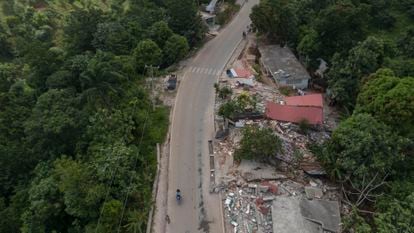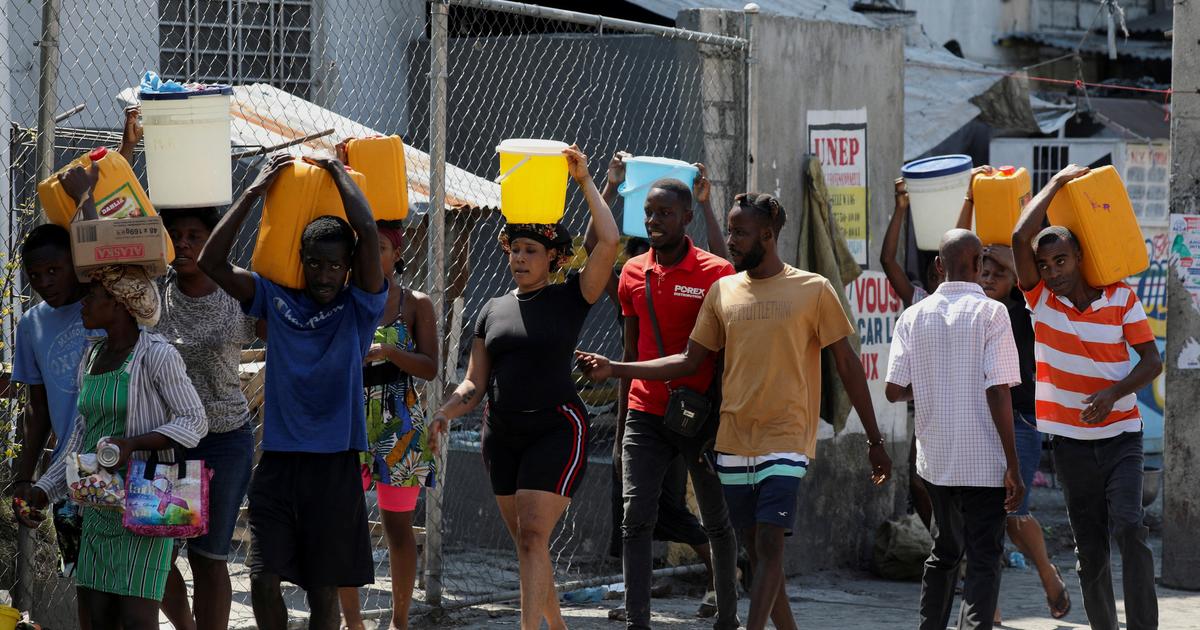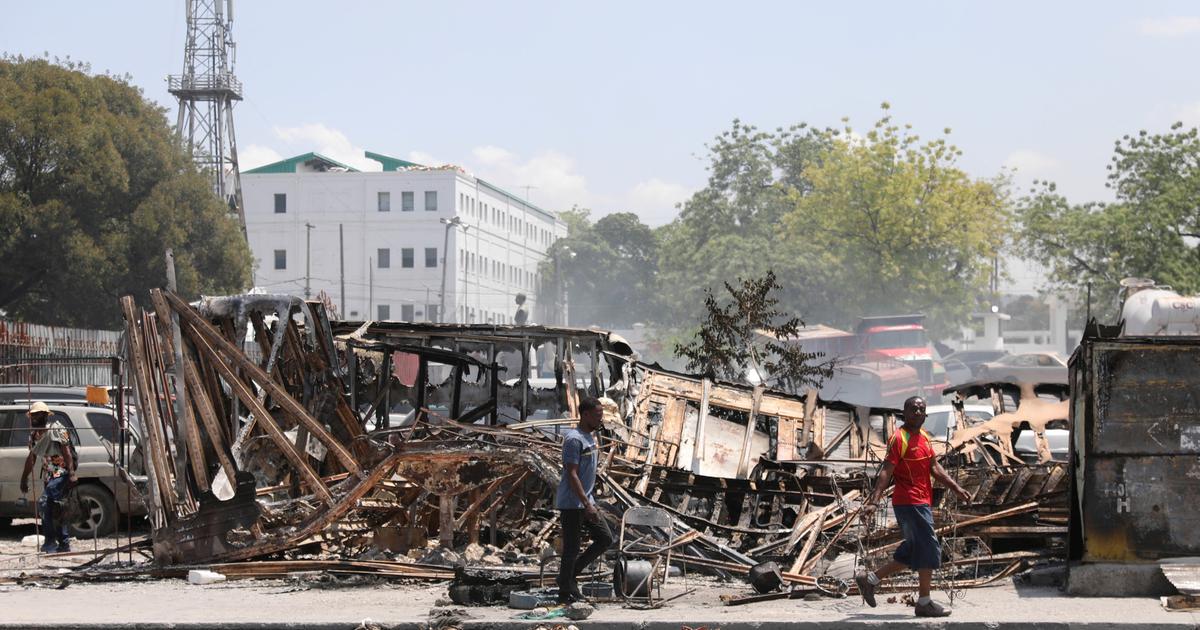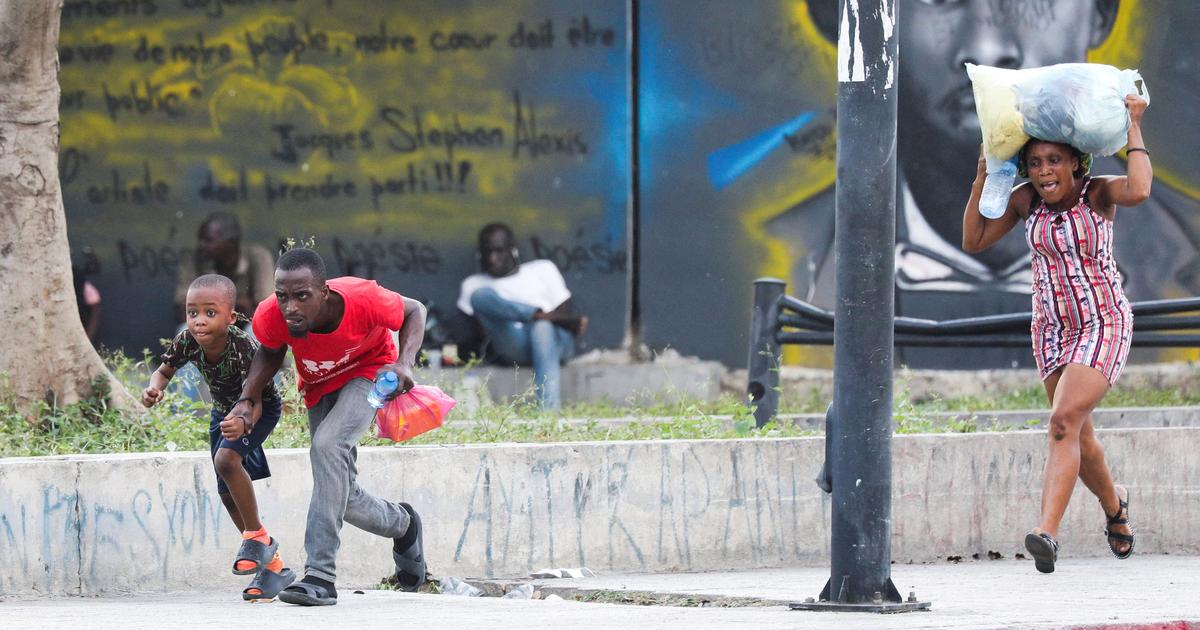EL PAÍS offers the América Futura section openly for its daily and global informative contribution on sustainable development.
If you want to support our journalism, subscribe
here
.
A year ago, the earth shook again in Haiti: a magnitude 7.2 earthquake shook the southeast of the poorest country in America and left more than 2,200 dead.
12 months later, the nearly 800,000 victims continue to try to rebuild their lives while the nation sinks further into the multiple crises that plague it, ranging from political instability, the increase in hunger fueled by high inflation of 26% and a great problem of insecurity with criminal gangs sowing terror in the capital and making the daily life of Haitians even more difficult.
“There are those affected by the earthquake who have had the opportunity thanks to the help to rebuild their homes, but now the population of Haiti is facing a hunger crisis that is a direct consequence of natural disasters and political instability,” warns in an interview with América Futura Perpetue Vendredi, director of program operations for the NGO Save the Children.
According to data from her organization, 4.5 million Haitians suffer from food insecurity, 100,000 more than before the earthquake, which especially affects children, who are at risk of malnutrition.
“Thousands of families and children do not have food.
Their basic economy depends on what they produce and they can't sell it in the local markets and so they don't have anything to give to their children”.
To this is added the security crisis derived from the gangs that have taken control of important areas of Port-au-Prince, subjecting the population to kidnappings and all kinds of violence.
“More than half a million children have not been able to go back to school due to gang activity and some neighborhoods in the capital have almost become war zones.
And children cannot leave the house without the risk of dying every day”, says Vendredi.
In addition, this has caused problems with the supply of fuel and other inputs that arrive at the port of the capital.
In order to distribute them, the trucks must pass through areas taken over by the gangs.
Relatives cry during the funeral of Madame Marie Monique Phidor, a 76-year-old pastor who died of a heart attack during the earthquake on August 14, 2021. The pastor lived in the community of Marceline, one of the most affected by the sinister.Monica Gonzalez
Marceline, 30 minutes from Los Cayos, lost two churches -one Catholic and one Baptist-, a medical center, a school and a community center after the earthquake.
The road to this community has landslides and huge cracks in the road.
Monica Gonzalez
Earthquake victims wait during food distribution in the Picot neighborhood, Los Cayos commune, Haiti. Monica Gonzalez
Marie, 27, shows an injury caused by landslides caused by the tremor. Monica Gonzalez
A group of victims waits for one of the food deliveries from the World Food Program, in the community of Maniche, where at least 177 people died. Monica Gonzalez
Hundreds of families who lost their homes took refuge in the Gabion Stadium, in Los Cayos, after the earthquake.
The victims tied wood and blankets to shelter from inclement weather, after the passage of tropical storm Grace.Mónica González
Residents of the shelter in the soccer stadium are fighting over the bags and bottles of water that the aid organizations have brought.Monica Gonzalez
This also affects the delivery of humanitarian aid on which many Haitians still depend.
Christian Dufourcq, coordinator of the forgotten crises unit of Doctors of the World, points out that both the insecurity situation and the constant protests and demonstrations derived from these crises make the work of organizations like his increasingly difficult.
As he explains, the strategic points that connect the capital with the south and north of the country by land are taken over by the gangs.
In the case of his NGO, the only way to deliver medicines and transport humanitarian workers safely is through United Nations helicopters.
“It is a complex context to work in terms of operations, logistics, movement of people, medicines and materials”, he points out.
To this is added what he calls a "political panorama of total uncertainty with a transitional government, a Parliament that does not exist and non-operative justice institutions."
Haiti's political crisis deepened on July 7 of last year with the assassination of then-president Jovenel Moïse.
More than a year later, the country is still waiting for an agreement to hold elections that have been postponed for several years, while Parliament has been reduced to just 10 senators and the justice system is practically inactive due to the security crisis.
At the head of the nation, meanwhile, is the Prime Minister, Ariel Henry, elected just one day before Moïse's assassination and who also denounced an attempted attack against him last year.
"There is a political chaos that does not have a good solution," adds Dufourcq, from Doctors of the World.
And this has generated a considerable increase in the migration of Haitians and what he calls a decapitalization of people who have fled the country.
“A year after the earthquake, so many things have happened and so many things continue to happen that it seems like decades have passed,” he ponders.
Children play in the Devirel refugee camp in Los Cayos in February of this year. Odelyn Joseph (AP)
For her part, Perpetue Vendredi insists that the humanitarian response to her country remains underfunded.
Faced with the criticism that there was after the 2010 earthquake that devastated Port-au-Prince due to mismanagement in the distribution of aid, the Save the Children spokesperson assures that last year there was a very great effort by all those involved to coordinate better after the disaster.
“We saw an improvement, a great effort on the part of the United Nations, international organizations and particularly local ones to work together and see what the most immediate needs were and what areas should be prioritized and make sure that people could rebuild their lives with dignity. and by themselves,” he explains.
“Perhaps the most different thing is that there were not enough resources for the necessary response.
At Save the Children, for example, we have not been able to reach our goal.
That is why we are appealing to the international community, despite the crises elsewhere: we ask them not to forget Haiti and this multiple and very complex crisis that combines natural disasters, political instability and insecurity.
And the most important thing now: hunger.”


/cloudfront-eu-central-1.images.arcpublishing.com/prisa/RJECWNQSME4ZC4AJX4NFKPPWMY.jpg)





/cloudfront-eu-central-1.images.arcpublishing.com/prisa/4YJMGVUCWNCTTD5PKRVXN5PUAI.jpg)
